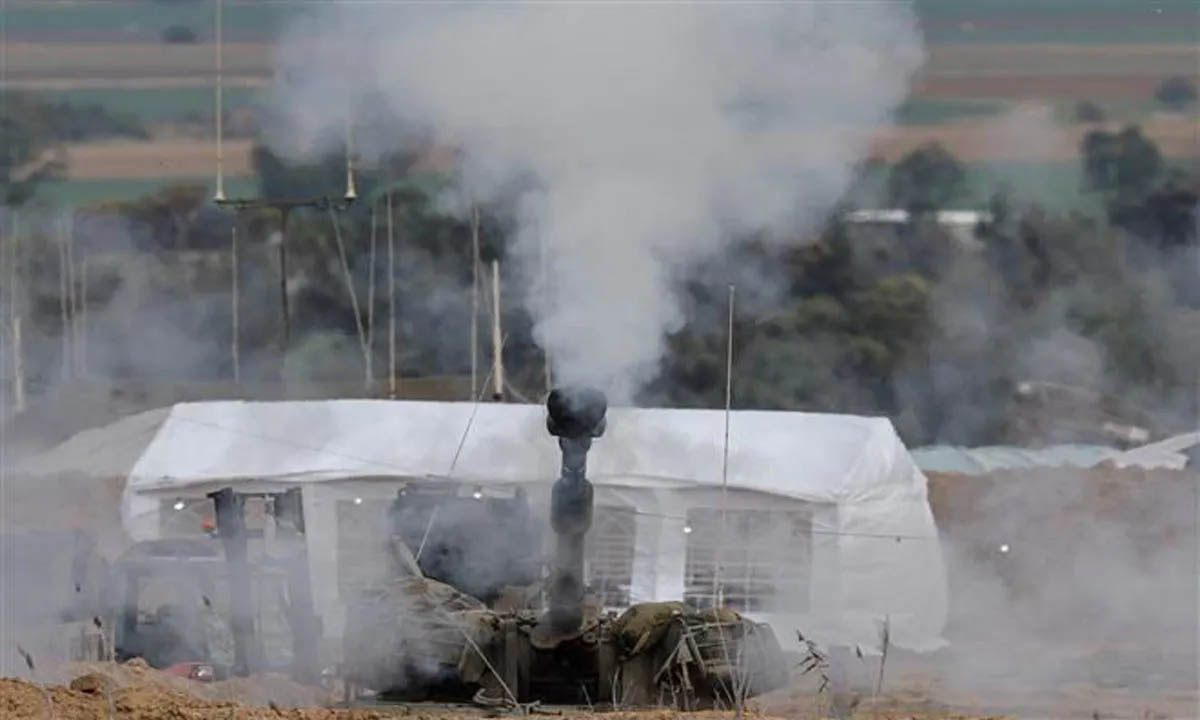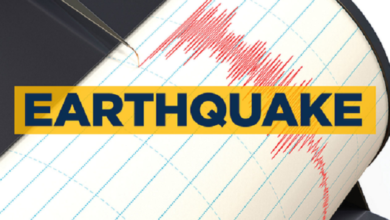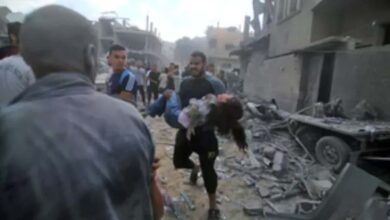2 Israeli citizens killed in Lebanon attack

Jerusalem. Two civilians were killed in northern Israel on Sunday when an anti-tank missile fired from Lebanon struck their home in a town near the border, sparking a second conflict against the backdrop of the ongoing Israel-Hamas war. The deadly attack came on the 100th day of the conflict between Israel and Hamas, which has killed nearly 24,000 Palestinians, devastated large parts of Gaza, driven some 85 percent of its 2.3 million residents from their homes. And pushed one-fourth of the population into starvation. ,
The war began with a surprise attack by Hamas on October 7 in southern Israel in which the militants killed about 1,200 people, mostly civilians, and took about 250 hostages, about half of whom are still alive. are also in captivity. Tensions have risen across the region, with Israel exchanging fire almost daily with Lebanon’s Hezbollah terrorist group, Iran-backed militias attacking U.S. bases in Syria and Iraq, and Yemen’s Houthi rebels threatening international Shipping has been targeted, leading to a wave of US air strikes last week.
A day after Sunday’s missile attack, the Israeli military said it had killed three militants who had crossed into Israel from Lebanon and were attempting to carry out attacks. Hezbollah leader Hassan Nasrallah was speaking on Sunday. The unprecedented level of death and destruction in Gaza has prompted South Africa to file genocide charges against Israel at the International Court of Justice. Israel strongly denies the charges and has It has vowed to continue its aggressive stance even if the Hague court issues an interim order to stop it.
“No one will stop us, not the Hague, not the axis of evil and not anyone else,” Netanyahu said Saturday evening, referring to Iran and its allied militias. Israel also promised to return more than 100 hostages still held in Gaza. As its leaders face growing opposition from their families, including a 24-hour rally in Tel Aviv that began on Saturday evening and drew thousands of supporters. Israeli forces took only one hostage More than 100 hostages were released in exchange for 240 Palestinians captured by Israel during a week-long ceasefire in November, with Hamas saying that unless Israel ends its offensive, Till then no hostage will be released.
Israel and Hezbollah have been careful not to let their back-and-forth escalate into a full-scale war on another front. But they have come closer on several occasions – most recently after an airstrike that killed Hamas in Beirut on January 2. A top official was killed. Both Hamas and Hezbollah have blamed Israel for the attack. The latest attacks on Israel, including the deaths of two civilians on Sunday, have raised the possibility of new Israeli retaliation. Israeli rescuers said the missile struck a house in the northern Israeli town of Yuval, killing a 40-year-old man. And his 70-year-old mother died.
Although Yuval is one of more than 40 towns along the northern border evacuated by the government in October, Israeli media reported that the family stayed in the area because they work in agriculture. More than 115,000 Israelis have fled the northern border due to the ongoing tensions. Have fled Israel. In Israel, rocket launches from Lebanon have killed 12 soldiers and seven civilians, and wounded more than 170. Hezbollah has reported that at least 150 fighters and 20 civilians have been killed in the daily shelling. The deadly attack came hours after the army said it had killed three militants who had entered the disputed Israeli-controlled territory in the Golan Heights.
A group called Islamic Glory Brigades claimed responsibility for the infiltration. The Associated Press could not independently verify the statement, and Hezbollah, the Lebanese branches of Hamas and Palestinian Islamic Jihad all said the group was not affiliated with them. According to Israel, more than 2,000 rockets and 350 Drones have been launched. America saved Israel from calling for a ceasefire. Israel is also under increasing international pressure to end the war in Gaza, but has so far avoided US diplomatic and military support.
Israel argues that any ceasefire would hand over victory to Hamas, which has ruled Gaza since 2007 and is bent on Israel’s destruction. Thousands of people marched in Washington, London, Paris, Rome on Saturday to demand an end to the war. , took to the streets of Milan and Dublin. Protesters gathered at the White House wave placards criticizing President Joe Biden’s unwavering support for Israel. In recent weeks, Israel has scaled back operations in northern Gaza, which was the initial target of the offensive, where for several weeks The air strikes and ground operations left entire neighborhoods in ruins.
After US Secretary of State Antony Blinken raised the issue during a visit to the area last week, Netanyahu said there were no immediate plans to allow thousands of Palestinians to return to their homes there. Has launched major operations against refugee camps built in Khan Yunis and central Gaza. The camps date back to the 1948 war over the creation of Israel, when hundreds of thousands of Palestinians fled or were expelled and were never allowed to return. Rami Abu Matouk, a resident of the Magzai camp Said, “No one is able to move.” “Warplanes, snipers and gunfire are everywhere.”
He said many buildings had been hit by airstrikes and shelling over the past two days, but no one could reach them to try to rescue survivors. Netanyahu said Israel would eventually have to advance southward. and taking control of Gaza’s border with Egypt, which Israeli officials say Hamas still uses for arms smuggling. Egypt, which has strengthened the border in recent years, has been and established a buffer zone, insists that it has full control over the border and says that any such operation would have to be considered in the light of the agreements it has with Israel and the United States.
The area in and around the border city of Rafah is also filled with thousands of Palestinians who fled other parts of Gaza and are crowded into UN-run shelters and tent camps. The Gaza Health Ministry said on Sunday that hospitals 125 bodies were found in the past 24 hours, bringing the total death toll to 23,968. The ministry does not distinguish between civilians and combatants but says about two-thirds of the dead are women and minors. It says more than 60,000 people have been injured. According to the U.N. humanitarian office, less than half of the 36 hospitals in the area are still partially functional. It says widespread fighting and Israeli sanctions – which have increased since the beginning of the year – making it difficult to deliver food, water and other much-needed aid. US pressure on Israel to facilitate delivery has met with little success.
Israel says Hamas is responsible for large numbers of civilian casualties, with its fighters using civilian buildings and launching attacks from densely populated urban areas. The army says 188 soldiers have been killed and 1,099 wounded since the start of the ground offensive.
















